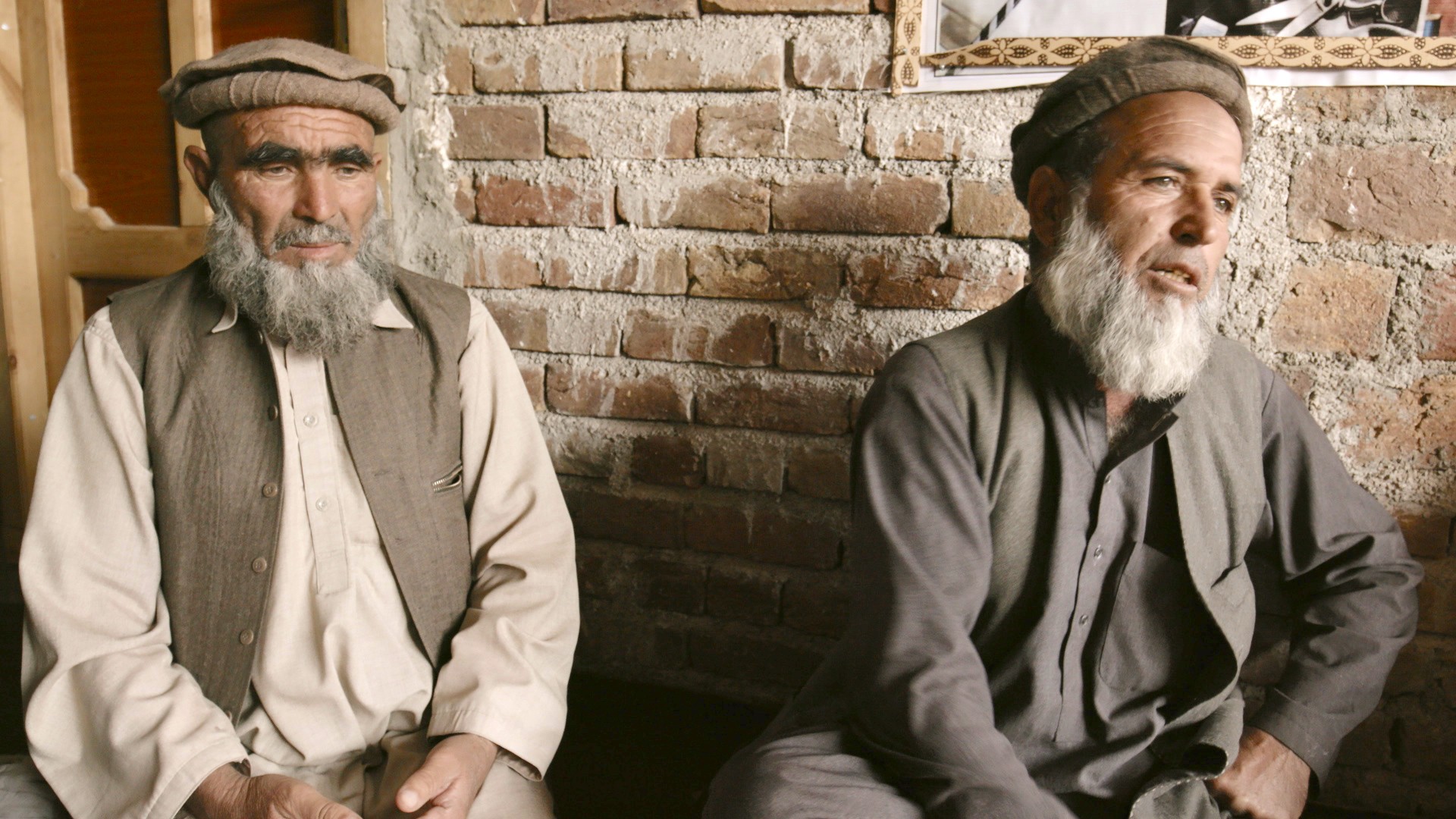Steve McCurry has spent nearly 40 years taking photos in Afghanistan. His early work covered the mujahideen in their struggle against the Soviet invasion, and unlike many photographers he opted to keep working in the country after the Soviets withdrew and the news cycle moved on. He documented a return to some degree of normality, a nation at comparative peace, then the rise of the Taliban and subsequently the impact of the Coalition invasion.
Advertisement
As well as taking one of the most famous photos ever in Afghanistan, McCurry's focus on the place and its people over images of combat, explosions and armies creates an unusually compassionate and affectionate portrait of a place most associate only with destruction and danger.I spoke to him about the book he recently put together of some of these images, the appropriately named Afghanistan..
VICE: Compared to a lot of books of recent years about Afghanistan, your book is notable in that it doesn't contain photos of actual fighting or combat. What are your views on showing combat, versus showing the effects of combat?
Steve McCurry: Well, I am not a war photographer. And I have never really photographed combat. I have been in a few situations now and then, 20 or 30 years ago, where I happened to be in a combat situation. But even in other countries I've worked in I have never done that, and I would never characterise myself as a war photographer. What I thought was more important, or what interested me more, was the civilian population. The people in these places who were just living their lives, caught in between these opposing sides. That was the part that I felt was important.There are of course images in the book showing the immediate impact of war. Injury, detention… but there are also photos depicting hope, beauty. The amount of work you have done there, making the edit must have been difficult. Did you have a balance in mind you wanted to strike, between the negative and positive?
I thought the selection was more reflective of my journey in Afghanistan. It is a diary, if you will. And I took the most important pages out of that diary. Of course, Afghanistan is a place where there's been armed conflict since 1978, and it goes on and on and on. I thought that, though it's a beautiful country with amazing people and an amazing culture, there is this trauma and trouble there. There are all sorts of neighbours in the region who are trying to affect the outcome of this conflict. Neighbours like Russia, but also China. Then there's the US and its allies. Everybody had their finger in the pie. The selection was focused on memorable times, memorable people I met, and it's certainly a personal journey, and it's really trying to show the culture and the people, but also what's happened to this country in my view. It isn't a history of Afghanistan for the past 40 years; it's a history of my experience in Afghanistan for the last 40 years.
Steve McCurry: Well, I am not a war photographer. And I have never really photographed combat. I have been in a few situations now and then, 20 or 30 years ago, where I happened to be in a combat situation. But even in other countries I've worked in I have never done that, and I would never characterise myself as a war photographer. What I thought was more important, or what interested me more, was the civilian population. The people in these places who were just living their lives, caught in between these opposing sides. That was the part that I felt was important.There are of course images in the book showing the immediate impact of war. Injury, detention… but there are also photos depicting hope, beauty. The amount of work you have done there, making the edit must have been difficult. Did you have a balance in mind you wanted to strike, between the negative and positive?
I thought the selection was more reflective of my journey in Afghanistan. It is a diary, if you will. And I took the most important pages out of that diary. Of course, Afghanistan is a place where there's been armed conflict since 1978, and it goes on and on and on. I thought that, though it's a beautiful country with amazing people and an amazing culture, there is this trauma and trouble there. There are all sorts of neighbours in the region who are trying to affect the outcome of this conflict. Neighbours like Russia, but also China. Then there's the US and its allies. Everybody had their finger in the pie. The selection was focused on memorable times, memorable people I met, and it's certainly a personal journey, and it's really trying to show the culture and the people, but also what's happened to this country in my view. It isn't a history of Afghanistan for the past 40 years; it's a history of my experience in Afghanistan for the last 40 years.
Advertisement
WATCH: ISIS in Afghanistan

It's very clear from the book that you have an affinity with the people of Afghanistan. Do you feel that perhaps there's been a lack of humanisation of the Afghans, certainly post 9/11, or at least an under-representation of them in the media.
Afghans have a great sense of humour. They are friendly and show great hospitality. In many cases they are hard-working. They love their families, they want education and healthcare. But the way the news is, we only ever hear that these people are terrorists. So my experience is different from that. I have a lot of Afghan friends, and I have seen their true character, in my view.The diversity of the population also comes across, which is something explicitly touched upon in the book's afterword, by the historian William Dalrymple. It's a people who are often, as you point out, massed as one these days, in spite of myriad tribal and ethnic groups. Was your edit in part intentionally trying to illuminate viewers about this depth of character, complexity and diversity?
I wanted to show as much diversity as I could, yes. But again, it's really a kind of journey. This is not a book covering every tribe and every region. It's not that. It's not an encyclopaedia of the country. That was never my intention, to try to make that; that's another book for another person. This is simply my personal experience. Some of the pictures don't really address the politics or the situation, but they are personal pictures…
Advertisement
After nearly 40 years working in Afghanistan, what made you feel that now was the time to do a retrospective of this scale?
Well, I think you can spend a lifetime on a subject. I think that, at some point, you look at your words or your pictures and you come to the conclusion that you have said what you wanted to say – you have made your statement. The impression you wanted to make is complete. There's a point where you feel that you have had an experience, and maybe you have gone back five, or ten times, and you are kind of repeating yourself. I think that when that starts to happen, whether in Afghanistan or somewhere else, it's time to move on.The book weaves images of resilience and optimism with those of despair. How do you feel about the country now? Do you feel the situation there is more hopeless than it was when you first went?
Afghanistan will survive. I think that what's happening now will continue. The Afghans are a very resilient people, they will find some accommodation. That's the way their history has been for hundreds of years. The current course the country is taking, with the US, the UK, NATO involved? Due to the politics and greed it's been a waste. Everybody had their own agenda, and I don't think the Americans ever quite understood the situation there, or didn't have the will to really figure it out. And after a trillion dollars spent – which has largely been wasted – and a couple thousand American lives… all you can say is that it's been a misguided venture.
Well, I think you can spend a lifetime on a subject. I think that, at some point, you look at your words or your pictures and you come to the conclusion that you have said what you wanted to say – you have made your statement. The impression you wanted to make is complete. There's a point where you feel that you have had an experience, and maybe you have gone back five, or ten times, and you are kind of repeating yourself. I think that when that starts to happen, whether in Afghanistan or somewhere else, it's time to move on.The book weaves images of resilience and optimism with those of despair. How do you feel about the country now? Do you feel the situation there is more hopeless than it was when you first went?
Afghanistan will survive. I think that what's happening now will continue. The Afghans are a very resilient people, they will find some accommodation. That's the way their history has been for hundreds of years. The current course the country is taking, with the US, the UK, NATO involved? Due to the politics and greed it's been a waste. Everybody had their own agenda, and I don't think the Americans ever quite understood the situation there, or didn't have the will to really figure it out. And after a trillion dollars spent – which has largely been wasted – and a couple thousand American lives… all you can say is that it's been a misguided venture.
Advertisement
I think that the Afghans will survive, but the Taliban, they live there. That's their home. They aren't going anywhere. The Afghan fighters have a clear mission and I think their spirits are high, since they are essentially winning. I think the average American solider – while it's part of man's nature to fight – the average soldiers there would, I imagine, want to go home. It's not their country, not their fight. Soldiers aren't generally very interested in the culture; don't meet many Afghans or go into their homes.You would think the trillion dollars, all that money, you would think it could get Afghanistan a lot of schools, hospitals, whatever… but in the end the Afghans will figure it out themselves. There will come a point at which people will realise they are not gaining any ground, and that there's no point spending our resources on it. I think we have learned we can't control the world.Afghanistan is out now on Taschen.See more photos below:
